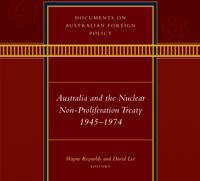Book Review: Man of Contradictions: Joko Widodo and the Struggle to Remake Indonesia
Joko Widodo’s victory in the presidential race in 2014 challenged the previously elitist political establishment. His victory represented change, however Widodo’s vision of modern Indonesia has not been realised.
An Indonesian neighbourhood is a local community in which residents from all walks of life acquaint with each other and become good neighbours. Tattling about each other is more a social intimacy and equality than an exasperation. Joko Widodo, the incumbent Indonesian President, was another neighbour in this setting: his childhood in a riverbank poverty-stricken zone, his education in a local public school around the corner, and, later, a furniture-maker in a Javanese hometown. They were attributes quintessential to the making of a populist figure for a nation that had only brought the unsurprising nationally-privileged notables—retired army officers, engineers, an offspring of a founding father, and a cleric—as presidents.
Being relatively unburdened with the country’s political establishment was Widodo’s ticket for getting a popular trust as someone with no vested-interest but to bring a betterment to the country. He is expected to “shake up a broken system” as Ben Bland puts it in Man of Contradictions, a brief biography of the nation’s leader popularly known by his nickname, Jokowi. It is, nonetheless, Jokowi’s identity as a parish everyman that since his elevation to presidency has delivered Widodo heightened chatters and censures from fellow citizens in the age of social media and media freedom. He is seen as equal to the other fellow citizens and, therefore, his family and ethnic affiliation, religion, and provincial choice of vocabularies are scrutinized, mocked, and reviled. He might have been treated differently had he been part of the preserved elites. Widodo’s victorious presidential race in 2014 was challenged in the Constitutional Court, the first in the nation’s post-colonial history, by his rival, Prabowo Subianto, a retired army officer. The lawsuit was refiled by the very same rival in the wake of Jokowi’s re-election in 2019.
In spite of an image of him being an inspiring successful battler, his electoral votes grew from 53% to just 55%, less impressive than his immediate predecessor, S.B Yudhoyono, another retired army general, who was overwhelmingly elected and re-elected both by over 60%. His pick for an Islamic cleric to be his deputy with the hope to compensate his religious credential lacking in the 2014 victory hardly echoed among the remaining voters. The result indicated shortcomings of broadening his electoral support for his re-election regardless of his “no burden” (tanpa beban) claim.
His celebrated social policies entail the distribution of cards for a variety of purposes (i.e. education, cash for the poor, health protection, training subsidy for young jobseeker) often handed out by him in person to the people during his visits to every part of the country. Dubbed by media as kartu sakti (lit, magic card), they, while maybe effective for those in need, serve more like some giveaways from a benevolent father or, perhaps, a wizard expected to make wishes come true, than a comprehensive sustainable social welfare policy. In the wake of the current pandemic and the country recorded the most cases in Southeast Asia, his administration was able to spend just over 40% of the allocated health budget by the end of 2020.
In contrast, the administration becomes a locus in which the existing oligarchy—politicians, retired officers, and business people—converge, with the latest being the accommodation of his two-time election rival into his cabinet. His initial backers in the first-term administration, mostly those from grassroots politics and academia appear to have now been pushed aside to the less-strategic peripheral plum jobs in the state-owned enterprises or the state agencies. His determination to expand foreign investment and advance infrastructure seemingly outweigh the social protection agenda urgently needed by the least-privileged majority, or pursuing human rights and advancing antigraft commitment.
Yet, Jokowi remains charismatic to the popular masses attracted more by his humble and unceremonious mannerism. A figure like his is anyone’s neighbour in average Indonesian towns. Seeing someone from next door to rise to the national stage as a leader may relieve the population longing for a satrio piningit (a hidden knight), a Javanese apocalyptic messianic character who came from hardship and impoverishment. Simultaneously, in modern context, his path to power bore the impression of democracy being at play with an outsider getting a fair go like the other nobles anticipated in the Indonesian politics.
Widodo’s vision and his leadership style may be unconventional by the Indonesian standard. The way he perceives his nation in the global politics and economy, as well as its domestic quandary is shaped largely by his experience as a resident of a local community. This is a reality that is often overlooked in comprehending a society in the region beyond its geostrategic and economic importance in international affairs. Unfortunately, the area studies from which this cultural doing can be probed as a soft power are in decline in Australia.
Bland’s writing, thankfully, offers insights of Jokowi and Indonesia through cross disciplinary approach familiar in area studies to look into the complexities of the nation, with the hope readers understand the broader context for challenges faced, and contradictions demonstrated, by Jokowi in his path to power. The author carefully selected events and anecdotes both in Jokowi’s family life and official roles to emphatically reveal the colourful aspects, often at odds to each other, of his leadership. Yet, the use of a variety of voices of Indonesian subjects ensure the non-biased perspective of the first work of the kind with journalistic and academic value available to the English readers.
Time will tell as to whether Widodo would remain faithful to the expectation of his base or immersed in the country’s usual politics. He knows, on the one hand, that one has to be a good neighbour and often in the community one has to be a patron to the unfortunate clients. On the other hand, he has never disputed the media’s philanthropic labelling for his welfare schemes. At this point he is much closer to the mainstream Indonesian political culture marked by rampant clientelism in exchange for support and loyalty.
By all means he would need to compromise with the established forces to safeguard his legacies, namely, among others, ambitious plan for a new nation’s capital, replicating more Balis, and grooming his cronies in politics. None seem to reflect the popular aspiration. Toward the end of his second-term, his last as constitutionally-sanctioned, the man appears to become an antithesis of himself. As a non-member, he has every reason to join the nation’s elite club to secure his presidency and, perhaps, beyond. Everyone should probably remember that Widodo’s remote predecessor, Suharto, despite his army credentials, had a roughly similar beginning with his rural underprivileged upbringing. He believed in trickle-down effect economy with infrastructure development and foreign investment the priority over welfare and democratic reforms. Yet his presidency lasted for over three decades and his legacies define what Indonesia is today, for better and worse.
Nicolaas Warouw is an anthropologist and program convener in Indonesian Studies at the School of Humanities and Social Sciences (UNSW Canberra), The University of New South Wales – Australia.
This article is published under a Creative Commons License and may be republished with attribution.





